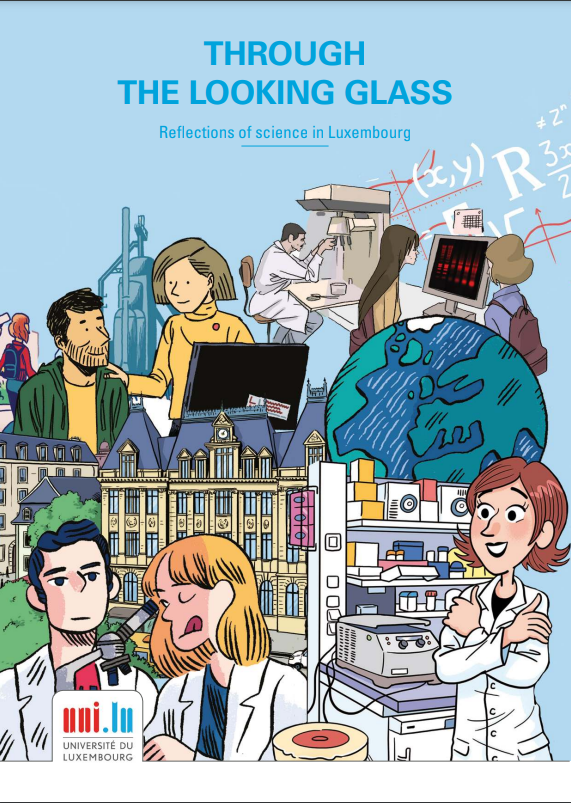In the last couple of months, 22 doctoral candidates from the Doctoral School in Science and Engineering (DSSE) have produced seven comics about various research topics in Luxembourg. The stories touch different aspects of mathematics, computer science, physics and biology. By using this visual medium, the young scientists want to interest high-school students in science.

Challenges of conceptualising a comic
Together with agence9 – an agency from Paris specialized in communication via comics – the doctoral candidates developed their comic ideas. First, they had to find a story they wanted to tell. Some of them drew inspiration from important findings in their field of research. “Comics are a nice and funny way to show the public what we scientists do”, says Mohamad Sarmini, doctoral candidate at the Luxembourg Institute of Health (LIH).
Others wanted to explain every-day-to-day tasks, their own research or specific terms. “Nowadays you hear a lot about AI – Artificial Intelligence – but most people don´t really know much about it”, explains Romain Tching, one of the doctoral candidates involved in the outreach activity. “We wanted to simplify and explain it in a way that more people could understand.”
This was the second and more challenging part: making the story understandable and interesting for high-school students. To achieve this, each group of three to four doctoral candidates teamed up with a graphic artist. Both profited from each other’s expertise. On the one hand, the non-scientists made sure the story was appealing to the reader. On the other hand, the young scientists made sure that the scientific concepts as well as the representation of researchers were correct.
A key point for many of them was fighting stereotypes and common misconceptions. In the first draft of some of the comics, you could find the typical representation of a scientist: old, male and wearing glasses. “This is really not what is going on”, says Isabel Rosety, doctoral candidate at the Luxembourg Centre for Systems Biomedicine (LCSB), while explaining her group´s decision to change that character. For them it was important to show that many young people do science – male and female.
Another group wanted to fight common misbeliefs about mathematics. “We wanted to show school kids that mathematics is not just about calculating”, says Jim Barthel, doctoral candidate at the Computer Science and Communications Research Unit (CSC).
“As a scientist I always felt responsible to communicate science”, Kishor Acharya, doctoral candidate at the Luxembourg Institute of Science and Technology (LIST) explains. “Why? Because science is part of society.”
Doctoral Education in Science Communication
The seven comics have been developed in the frame of the project “Doctoral Education in science communication” (DESCOM). Launched in 2018 with the support of the Luxembourg National Research Fund (FNR) and the Doctoral School of Science and Engineering (DSSE), the project aims to support interactions between academia and the public by providing different modes of training in science communication.
The development of the science comics has been made possible thanks to many people involved, especially Bruno Teheux, scientist within the Mathematics Research Unit (RMATH), Oliver Glassl, Doctoral School Facilitator of the DSSE, and Serge Haan, former Head of the DSSE and currently Vice-Dean of the Faculty of Science, Technology and Communication (FSTC).
